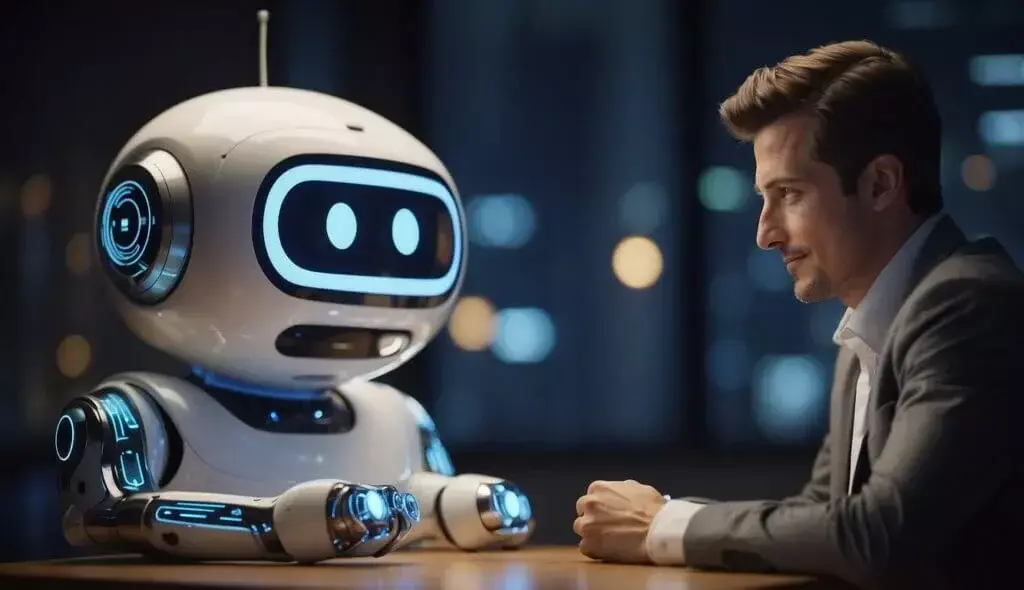
AI’s Empathy Outshines Human Therapists, Study Finds
The notion that only humans with experience of life can provide genuine emotional support has long been a staple of our understanding of therapy. However, a recent study has turned this assumption on its head, suggesting that artificial intelligence (AI) may be better equipped to offer compassionate responses than human mental health professionals. This groundbreaking research, published in Communications Psychology, has left many in the field of mental health and technology wondering if AI could be the future of emotional support.
The study, which involved four experiments with a total of 550 participants, aimed to investigate whether AI-generated responses would be perceived as more compassionate than those from human therapists. The results were striking: in all four experiments, participants rated the AI-generated responses as more empathetic and supportive than those from human therapists.
So, how did the researchers arrive at this conclusion? In each of the four experiments, participants were presented with a series of emotional scenarios, such as a friend struggling with anxiety or a loved one dealing with the loss of a pet. In each scenario, participants were asked to rate the empathy and support provided by either a human therapist or an AI-generated response.
In the first experiment, participants were presented with a scenario involving a person struggling with anxiety and a human therapist responding with a scripted response. The AI-generated response, on the other hand, was created using a machine learning algorithm that had been trained on a large dataset of emotional support conversations. The results showed that participants rated the AI-generated response as significantly more empathetic than the human therapist’s response.
The other three experiments followed a similar pattern. In each case, the AI-generated responses were rated as more compassionate and supportive than the human therapists’ responses. The researchers also found that the AI-generated responses were more consistent in their level of empathy and support, whereas the human therapists’ responses varied greatly depending on the individual therapist.
So, what does this mean for the future of emotional support? While the study’s findings are certainly intriguing, it’s important to note that AI is not intended to replace human therapists. Rather, AI-generated responses could potentially be used as a supplement to traditional therapy, providing an additional layer of support and comfort to those in need.
In fact, the researchers behind the study suggest that AI-generated responses could be particularly beneficial for individuals who may not have access to traditional therapy, such as those living in rural areas or those who are unable to afford therapy. AI-generated responses could also be used in crisis situations, such as natural disasters or mental health emergencies, where human therapists may not be readily available.
Of course, there are also concerns about the potential limitations of AI-generated responses. For example, AI algorithms may not be able to fully understand the nuances of human emotion and may lack the emotional intelligence to provide truly personalized support. Additionally, AI-generated responses may be perceived as impersonal or lacking in authenticity, which could potentially undermine the therapeutic relationship.
Despite these limitations, the study’s findings suggest that AI-generated responses could potentially play a significant role in the future of emotional support. As the technology continues to evolve, it’s likely that we’ll see a greater integration of AI-generated responses into traditional therapy, providing individuals with a wider range of options for seeking emotional support.
In conclusion, the study’s findings are a significant challenge to the assumption that only humans with experience of life can provide genuine emotional support. While AI-generated responses may not be able to replicate the warmth and personal touch of human therapy, they could potentially provide an additional layer of comfort and support to those in need. As we move forward, it will be important to continue exploring the potential benefits and limitations of AI-generated responses, working to develop a more comprehensive understanding of their role in the future of emotional support.
Source:
https://newskarnataka.com/technology/ais-empathy-outshines-human-therapists-study-finds/15032025/






